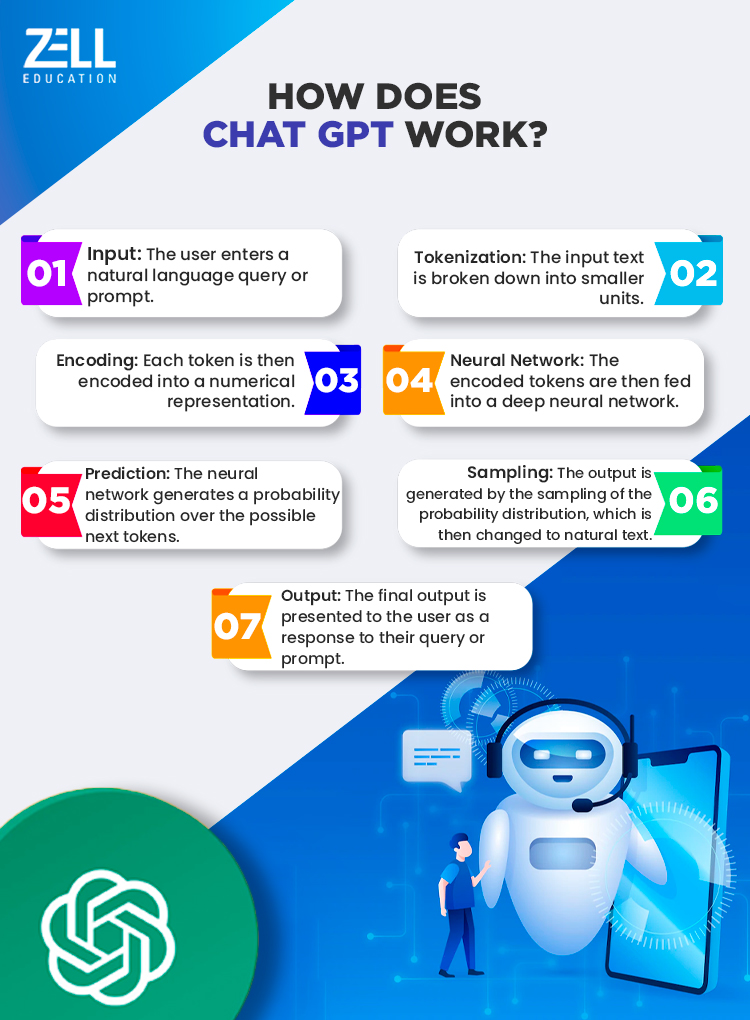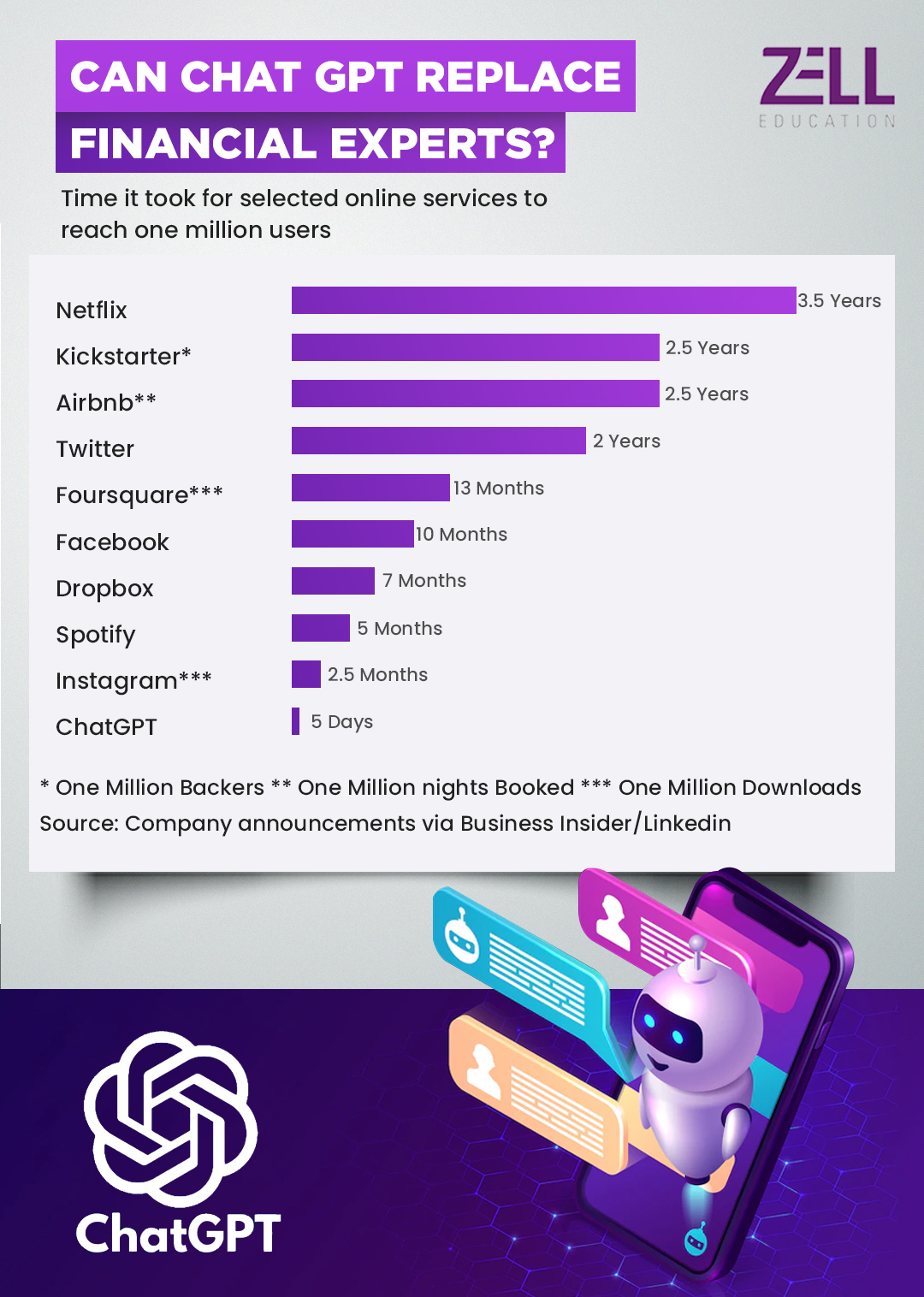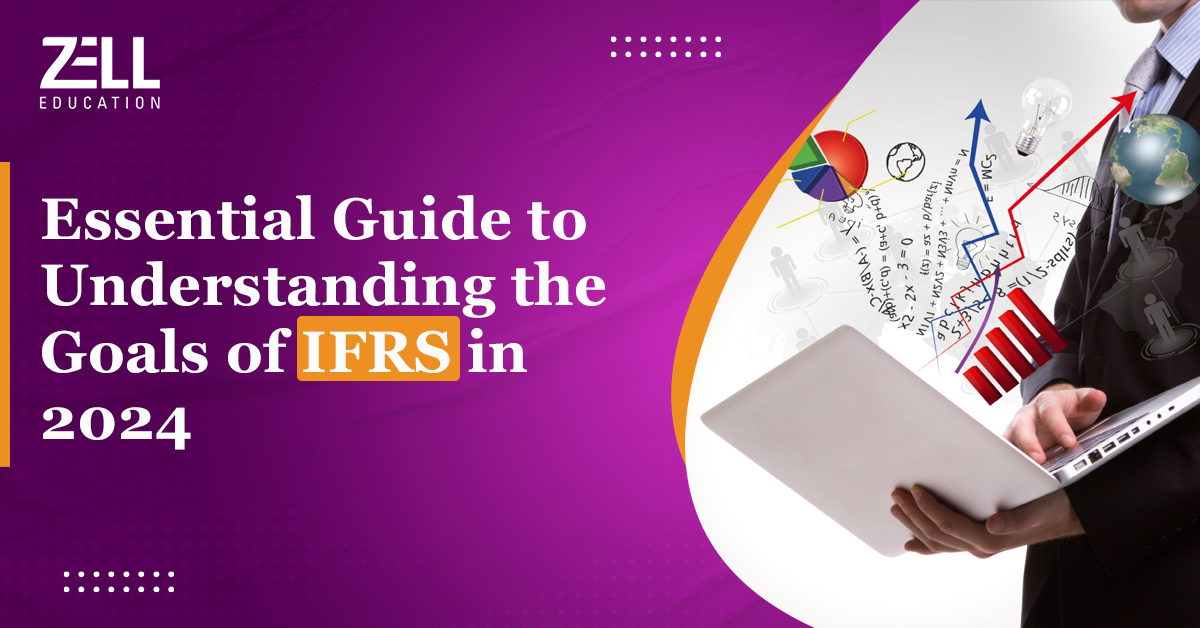Can ChatGPT Replace Financial Experts?
AI in financial services has significantly improved businesses. From customer service to fraud detection and task automation, AI has achieved it all.
Integrating AI and ML in finance has changed the way finance professionals work. All financial institutions, such as banks and fintech firms, are increasingly applying machine algorithms to automate time-consuming procedures and provide a more efficient and personalised consumer experience.
ChatGPT, powered by AI and ML, through easy, intuitive dialogues, helps chatbots assist clients with tasks such as checking account balances, transferring money, and managing investments. Let us find out how ChatGPT has transformed the financial sector and if it can replace modern financial experts.
Also, do not forget to read our blog “Best 10 Tips To Become a Successful Finance Professional” if you want a successful career in finance.
What Is ChatGPT?
ChatGPT stands for “Generative Pre-trained Transformer”. OpenAI launched this powerful AI tool in November 2022. It is a variant of the popular GPT-3 language model designed exclusively for chatbot applications.
ChatGPT can automate processes, generate Excel macros, answer queries, perform financial modelling, translate languages, and even teach to create machine learning algorithms.
Companies have leveraged ChatGPT’s machine-learning capabilities to a great extent. They have uncovered trends and patterns that may not have been evident to human analysts by training them on enormous amounts of financial data.
How Is The Finance Sector Using ChatGPT?
The finance sector can use ChatGPT in multiple ways. Some of its uses in the finance sector are as follows:
Risk management
Finance professionals like Certified Management Accountants (CMA) advise companies on risk management by analysing the company’s financial health based on current and historical data.
ChatGPT can be a valuable tool that helps CMAs detect and analyse potential threats to a company’s financial health more quickly and efficiently. It can also be used to create frameworks that help the company manage those risks better.
Meanwhile, if you are looking forward to pursuing a career as a CMA, read our blog on “Benefits of Having CMA Certification” for more clarity on how it can be a rewarding career.
Fraud detection
Fraud detection involves the detection and prevention of criminals from obtaining money or sensitive data by deception. ChatGPT is great for increasing safety by detecting fraud. It can detect odd or suspicious financial activity patterns and signal probable fraud for further investigation.
Portfolio management
Finance experts have to advise their clients on portfolio management. Companies often hire qualified Chartered Financial Analysts (CFA) to perform this task. They must implement investment strategies to achieve client objectives and help them in portfolio development and management.
CFAs can use ChatGPT to optimise an asset portfolio and evaluate the performance of various assets of an individual, allowing finance experts to make better judgements. This way, financial experts can provide more nuanced guidance to their clients.
Financial prediction
Analysing a vast amount of data can be overwhelming and time-consuming. For example, finance job roles one lands after courses like ACCA demand professionals to prepare corporate reports, financial accounts, and projections.
With ChatGPT, ACCAs can analyse massive volumes of financial data to uncover patterns that can be used to produce more accurate financial forecasts. To know more about the ACCA course’s scope, read our blog “ACCA Career Scope and Job Opportunities in India and Abroad”.
Will ChatGPT Replace Financial Experts?
Some of the duties performed by financial experts, such as data analysis and portfolio management, could be replaced by AI. But this will merely assist financial experts in dealing with massive data.
There have been many speculations on whether ChatGPT is here to replace financial experts. However, it would not take over the work of human programmers. It would instead assist them by making suggestions and concepts and allowing the human programme to write down the final output.
ChatGPT is only an assistant that lets programmers get into a productive flow overcoming blockades. It can be used as a medium to provide the best initial result that will lead to the output produced correctly by humans.
Limitations Of ChatGPT
ChatGPT is a powerful AI bot that carries out a conversation in response to a request made by users. It is intended to respond naturally and intuitively and has several possible applications.
But even though it engages in human-like conversation, it cannot provide customers with responses that are as refined as qualified financial experts. No matter how much technology advances, certain services warrant human finesse.
There are multiple reasons why ChatGPT would only partially replace financial experts. One of the most glaring proofs of this contention is that it cannot always produce valid solutions. These solutions that may look very reliable and convincing might turn out false and non-viable when validated by financial experts.
Sometimes the answers that ChatGPT provides might be highly mechanical and are typically hard for clients to understand. In these cases, only a seasoned financial expert can better elucidate their client’s solutions. These are a few limitations of ChatGPT that can be compensated for only by financial experts.
Wrapping Up
While AI bots like ChatGPT adds versatility and improvise responses, concerns around the accuracy and validity of answers are significant limitations. Tools like ChatGPT are revolutionary in assisting financial advisors in tackling complex queries. But human expertise is irreplaceable, and the financial services industry will always require professionals who can have more humane and personalised interactions with clients.
Courses like CFA, ACCA, and CMA can be your stepping stone in shaping a promising career in finance. Zell Education is the one-stop destination for training aspirants for the best jobs in the financial sector with the help of the CFA, ACCA, or CMA courses. Zell employs industry experts as faculty members, a personalised study plan, and 100% placement support. Visit Zell Education to learn more about the courses.
FAQs
1. How does ChatGPT work?
ChatGPT is an AI chatbot trained using a massive amount of data collected from the internet. Based on its learning from the training data, ChatGPT can generate natural human language text when given a prompt, such as answering a question.
2. Are chatbots used in financial services?
Chatbots have several applications in financial services. The bots can gather and process data and documents, create and manage customer accounts, reduce paperwork by using current data to automate client operations, provide balance information and do KYC, among other services.
3. What are the different types of chatbots?
Different kinds of chatbots exist today. Some of them are as follows: machine-learning chatbots, linguistic-based chatbots, keyword recognition chatbots, and menu-based chatbots, among others.
4. What are the benefits of using chatbots in finance?
Chatbots in the financial industry are used for various purposes, such as portfolio management, tax assistance, insurance-claim settlements, loan approvals, and KYC services.











